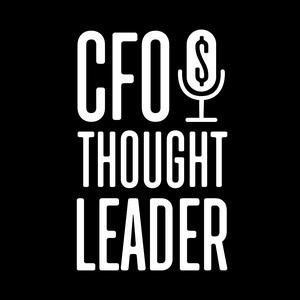1120: Navigating Growth, Crisis, and the AI Revolution | Eric Brown, CFO, Cohesity
Eric Brown vividly recalls his trial by fire at MicroStrategy. Joining a subsidiary, he expected to help deploy hundreds of millions from a planned secondary raise. Instead, “the parent company had a restatement…raised zero,” he tells us. Elevated to CFO, he faced layoffs of two-thirds of staff and operating margins at -40%. Over three years, Brown led a turnaround to +30% margins and a market cap recovery from $55 million to more than $1 billion. “Nothing really phases me,” he says of the experience.That resilience shaped how he later embraced growth. At Tanium, he oversaw hyperbolic expansion—ARR surging from $8 million to over $220 million in three years—while remaining operating cash-flow positive. At Electronic Arts, he guided the transformation from disc-based game sales to digital distribution. And at Informatica, he achieved what he once missed at another firm: leading a successful $1 billion IPO.Now at Cohesity, Brown sees a new frontier in AI. Comparing it to earlier waves like the internet and cloud, he emphasizes the capital intensity and strategic importance of data. Training large language models will be limited to “maybe eight to ten long-term” entities worldwide, he tells us. For Cohesity, which secures and curates customer data, AI offers both internal efficiencies—like case resolution and policy querying—and external growth through its Gaia platform.From existential crisis to IPO triumphs, Brown frames AI as the next defining wave. “The broad-based applicability is extraordinary,” he tells us, adding that the real battle will be for privileged data.CFOTL: Thank you for that perspective. You revealed to us pretty much what Cohesity is up to, and maybe you can tell us a little bit about the acquisition last year of Veritas. After that was announced, it was said you were now the largest data protection software provider by market share. How has that transformed your business strategy or competitive positioning?Brown: First of all, this transaction is a landmark deal—something that would make an amazing business school case study. To set it up: Cohesity, a private company with about $550 million in GAAP run-rate revenue, had just reached break-even. Then we bought 72% of Veritas in a carve-out from a private entity. That move doubled our size—Veritas had roughly $1.1 billion in GAAP revenue.You ask, how does a $500 million company buy a $1.1 billion company? The answer is you need a compelling case and a lot of capital. The case was horizontal consolidation: Veritas had an incredible install base but an older-generation product, while Cohesity had a next-gen hyper-converged product. Together, we could offer something better. With 4,000 Cohesity customers and 9,000 from Veritas—and only 2% overlap—we created a highly complementary enterprise customer base.To finance it, we essentially became a deal-specific private equity company, raising $950 million of equity and $2.8 billion of debt. We closed the deal in December last year. Since then, we’ve integrated at record speed—three to four times faster than you’d normally see in an M&A transaction. Every system has converged except customer care, which will be complete by November. Customer response has been strong, and the original thesis—that we’d be better together with a stronger roadmap and a future-proofed Veritas base—has proven absolutely true. This wasn’t just financial engineering; the combined product value proposition is rock solid, and it’s been great to see that play out.


